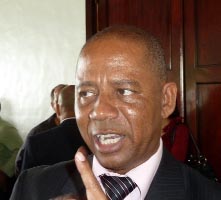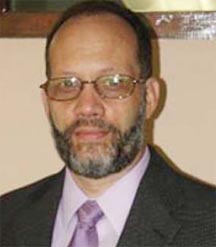CARICOM Foreign Ministers have denounced in strong terms the negative impact that the UK’s Air Passenger Duty (APD) tax continues to have on the region’s revenue sources.
According to a communiqué issued at the end of the conclusion of the Fifteenth Meeting of the Council for Foreign and Community Relations (COFCOR) held from May 3-4 in Paramaribo, Suriname, the foreign ministers observed that the tax was distorting trade and compromising the region’s efforts towards sustainable development, including the achievement of the Millennium Development Goals (MDGs).

The communiqué issued by the CARICOM Secretariat at Turkeyen said that the Council resolved to redouble their lobbying efforts in the UK, and will include the continued support and influence of the Caribbean Diaspora, to vigorously advocate for review of the tax.
The Council also agreed on the need for enhanced engagement with the Caribbean Diaspora and the formulation of a regional policy that would provide a platform for mobilising the talents, skills and resources of the communities of Caribbean origin overseas for promoting trade and investment, national development, policy formulation and advancing the interests of the Community.
Latin America
The communiqué also noted that strengthened relations with the Community’s Latin American neighbours featured prominently in the Council’s discussions as they analyzed the Community’s role in hemispheric and sub-regional bodies such as the Community of Latin American States (CELAC), the Association of Caribbean States (ACS) and CARICOM’s continued strategic alliance with Central American States through an intensified relationship between CARICOM and La Sistema de la Integración Centroamericana (SICA).
With regard to the ACS, the Council welcomed the election of the new Secretary General, Dr. Alfonso Múnera Cavadia of Colombia and looked forward to continued close collaboration under the new administration.
The ministers are also looking forward to participating actively in the Fifth Summit of the ACS to be hosted by Haiti later this year under the theme “Towards a Renewal of the Vision of the ACS for a Stronger and More United Greater Caribbean”.
The importance of active participation by CARICOM member states in the activities of the organization and in shaping its policy directions was underlined.
The meeting reiterated the importance of ensuring continued vigorous action and leadership in pursuing the operationalisation of the Caribbean Sea Commission, building on the substantial achievements gained through international recognition for this body as a pioneer institution in marine regionalism.
In addition, the Council called for the establishment of key institutional mechanisms of the Commission, resourcing its operations to ensure financial sustainability, and elaborating a legal framework for regional and international acceptance.
And underscoring the value of engaging with representatives of Third States, the Council adopted policy guidelines in respect of such engagements.
In this regard, it was agreed that interaction and cooperation with third states should contribute to mutually beneficial relations, including at the political, economic and technical cooperation levels.

Meanwhile, the Council welcomed representatives of a number of Third States, including Antonio de Aguiar Patriota, Foreign Minister of Brazil; Erkki Tuomioja, Minister of Foreign Affairs of Finland; Willy Claes, Minister in the Royal Council of Belgium; Jean Asselborn, Deputy Prime Minister and Minister of Foreign Affairs of Luxembourg, the Special Representative of the Prime Minister of Australia to the COFCOR, Richard Marles, and Parliamentary Secretary and Special Envoy of Spain Joaquín de Arístegui.
The Council engaged the representatives in fruitful exchanges on CARICOM’s relations with their respective countries. Among the issues discussed were political and technical relations, support for candidatures to international bodies, and collaboration on various issues in international fora.
The Council also took the opportunity to underscore the interests, concerns and special circumstances of the Caribbean Community, many of whose member states are categorized as Small Highly Indebted Middle Income Countries (SHIMICS).
In addition, the Council brought to the attention of the representatives the issues of the United Kingdom’s Advanced Passenger Duty and the graduation of member states from concessional financing.
Meanwhile, the Council welcomed the offer of Suriname to host the Second CARICOM-Brazil Summit in 2013 which will be preceded by a meeting of the foreign ministers of both sides.
The Fifteenth Meeting of the COFCOR was chaired by Winston G. Lackin, Minister of Foreign Affairs of Suriname.
The foreign ministers of the Caribbean Community met against a backdrop of global, hemispheric and regional trends, the communiqué stated.
The COFCOR focused on the continued impact of the global economic and financial crisis on the economies of the Community and the attendant outreach efforts to sensitize the members of the G-20 to its concerns and needs; adverse developments for small island developing and low-lying coastal states in the continuing international negotiations on climate change and on sustainable development.
There was also special focus on engagement with traditional and non-traditional partners in the context of the Community’s strategic priorities; concerns over emerging trends in the provision of technical assistance and cooperation by the Community’s international development partners (IDPs); security cooperation with external partners; implications of the establishment of the CELAC for the foreign policy positioning and coordination of the Community; and worrisome developments in some Associated Members of the Community.
The need to enhance foreign policy coordination in CARICOM in a constantly changing international climate was the common thread in the addresses at the opening ceremony by Lackin, Chairman of the COFCOR, and Ambassador Irwin LaRocque, Secretary-General of CARICOM.
Minister Lackin called for more effective coordination of foreign policy to respond to the changing international environment and for determining the region’s international agenda.
He emphasized the importance of COFCOR’s collaboration with the Council for Trade and Economic Development (COTED) in promoting and developing coordinated policies in a holistic manner in order to enhance external economic and trade relations of the Community.
“Foreign Policy coordination also requires that we, as ministers, and as member states participate more pro-actively in multilateral organizations and where necessary to bring about a reorientation of our focus,” Minister Lackin is quoted as saying.
The Secretary-General pointed out that coordination of foreign policy was essential to address issues such as the continued impact of the global economic and financial crisis on the economies of the Community, and the attendant outreach efforts to sensitize the members of the G-20 and other international decision-making bodies to the concerns and needs of the Region.
Coordination was also vital, he said, when addressing the issues affecting small island developing and low-lying coastal states in the continuing international negotiations on climate change and on sustainable development, given the upcoming Rio+20 Conference in June.
The Council undertook another in-depth discussion on foreign policy coordination, a mechanism whose institutionalization and critical importance have been the subject of constant focus.
The Council acknowledged the factors that have made the practice of coordination more challenging, especially for small states with limited capacity and resources.
These include, the communiqué noted, an increasingly burdened international and hemispheric agenda; drastic systemic and technological changes to the environment in which diplomacy is practised and divergent economic and political interests of individual sovereign member states.
It stressed the need for in-country harmonization on policy matters that impinge on external relations as a prelude to coordination with other member states.
Emphasizing the need for greater consultation and coordination, the foreign ministers reaffirmed a number of operational guidelines, including information collection and dissemination, and the more frequent use of modern information and communication technologies.
The use of the latter will enhance the consultation and decision-making of the Council through continuous contact.
The Council underscored the critical need for articulation of common policy positions and consistency of messages, the communiqué added.
Particular attention was paid also to the key coordinating roles played by the Bureau of COFCOR, especially in-between council meetings and caucuses prior to bilateral meetings and to the preparatory work of senior officials and the secretariat.
The Council exchanged views on the Community’s technical cooperation relations with its international development partners, noting its appreciation for the continued assistance received from a number of traditional as well as new development partners, which has provided meaningful support to the Region in the attainment of its development goals.
Moreover, the Council considered the emerging trends of some concern in the aid policy of International Development Partners, such as “differentiation”, which results in the graduation of certain member states from receiving national development assistance.
The ministers discussed strategies and policies to respond appropriately to such disturbing trends which do not take into consideration the problems of vulnerability of small states.
Candidatures
The Council continued to highlight the importance of CARICOM’s representation on international bodies, particularly where CARICOM’s representation is limited.
The Council endorsed a number of CARICOM candidatures, including Minister Audrey Joy Grant of Belize for a seat on the Board of the Green Climate Fund; Ambassador George Talbot of Guyana for a seat on the Bureau of the Second Committee of the UNGA (2012-2013); and Ambassador Henry MacDonald of Suriname for a seat on the Bureau of the Third Committee of the UNGA (2012-2013).
The Council also endorsed the candidature of Iwan A Sno for a position on the Statistical Commission of the United Nations for the period 2014-2017.
With regard to the candidacies of Third States which had sought the support of the Community, the Council recalled the decision of CARICOM Heads of Government to endorse Australia for one of the WEOG non-permanent seats for the UNSC for the period 2013-2014.
The meeting also agreed to support the US candidature for the UN Human Rights Council for the period 2013-2015 and expressed support for Brazil’s bid for a permanent seat on the UNSC in the context of the United Nations reform.
The Council received the Assistant Secretary-General of the Organisation of American States (OAS) and discussed major issues before that body.
The Council reaffirmed its commitment to participate actively in the upcoming Forty-Second Meeting of the OAS General Assembly to be held in Cochabamba, Bolivia, from June 3-5, 2012 under the theme, “Food Security with Sovereignty in the Americas”, and agreed on issues of importance to CARICOM to be pursued at that Assembly, including the Secretary-General’s strategic vision for the OAS.
Guyana was represented at the COFCOR meeting by Carolyn Rodrigues-Birkett, Minister of Foreign Affairs.





